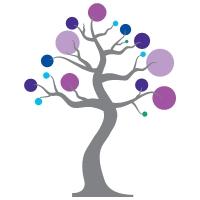I know what I feel and I understand why I feel the way I do and I can decide for myself if and in what way I should act on what I feel. (Daniel Goleman)
There is so much power in this quote and if we really understand the meaning of it we can transform our life. If you prefer a more scientific definition, it sounds like this: ”A set of emotional and social skills that influence the way we perceive and express ourselves, develop and maintain social relationships, cope with challenges, and use emotional information in an effective and meaningful way..”
MHS’ EQ-i 2.0 ® is one of the world’s most widely used emotional intelligence tests, with over 25 years of research and experience behind it. Emotional intelligence skills are critical for building relationships and teams, resolving conflict, solving problems, leading effectively, and building resilience. The EQ-i 2.0 provides a detailed assessment of areas of strength and potential areas for development. Each assessment comes with a comprehensive report describing how an individual’s emotional quotient (EQ) competencies work together and also provides suggested strategies for bringing EQ competencies into balance for greater effectiveness. All in all, this comprehensive assessment is widely regarded as the gold standard of emotional assessment testing.
Professor Stephen Stein (creator of the test tool EQ-i) divides EQ into 15 different competencies which in turn are divided into five main areas:
SELF PERCEPTION:
Self-Regard is respecting oneself while understanding and accepting one’s strengths and weaknesses. Self-Regard is often associated with feelings of inner strength and self-confidence.
Self-Actualization is the willingness to persistently try to improve oneself and engage in the pursuit of personally relevant and meaningful objectives that lead to a rich and enjoyable life.
Emotional Self-Awareness includes recognizing and understanding one’s own emotions. This includes the ability to differentiate between subtleties in one’s own emotions while understanding the cause of these emotions and the impact they have on the thoughts and actions of oneself and others.
SELF EXPRESSION:
Emotional Expression is openly expressing one’s feelings verbally and non-verbally.
Assertiveness involves communicating feelings, beliefs and thoughts openly, and defending personal rights and values in a socially acceptable, non-offensive, and
non-destructive manner.
Independence is the ability to be self directed and free from emotional dependency on others.
INTERPERSONAL:
Interpersonal Relationships refers to the skill of developing and maintaining mutually satisfying relationships that are characterized by trust and compassion.
Empathy is recognizing, understanding, and appreciating how other people feel. Empathy involves being able to articulate your understanding of another’s perspective and behaving in a way that respects others’ feelings.
Social Responsibility is willingly contributing to society, to one’s social groups,
and generally to the welfare of others. Social Responsibility involves acting
responsibly, having social consciousness, and showing concern for the greater
community.
DECISION MAKING:
Problem Solving is the ability to find solutions to problems in situations where
emotions are involved. Problem solving includes the ability to understand how
emotions impact decision making.
Reality Testing is the capacity to remain objective by seeing things as they really
are. This capacity involves recognizing when emotions or personal bias can
cause one to be less objective.
Impulse Control is the ability to resist or delay an impulse, drive or temptation to
act and involves avoiding rash behaviors and decision making.
STRESS MANAGEMENT:
Flexibility is adapting emotions, thoughts and behaviors to unfamiliar, unpredictable, and dynamic circumstances or ideas.
Stress Tolerance involves coping with stressful or difficult situations and believing
that one can manage or influence situations in a positive manner.
Optimism is an indicator of one’s positive attitude and outlook on life. It involves
remaining hopeful and resilient, despite occasional setbacks.


